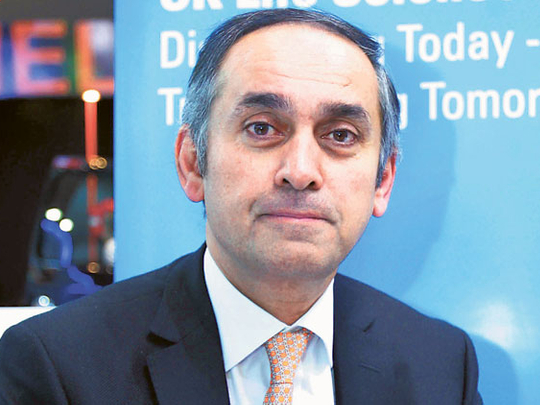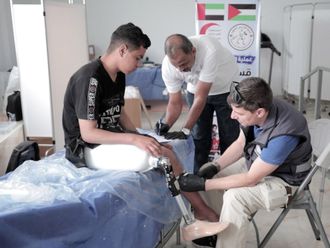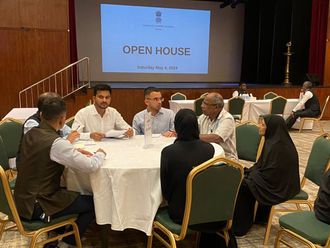
Dubai: A "fat tax" will not work and the only way to beat increasing rates of obesity in society is to help people change their behaviour, said British business ambassador Lord Darzi.
The ambassador was commenting on a question of whether some sort of tax would help bring down the fast-growing obesity rates.
The World Health Organisation had earlier proposed that the only way to fight the obesity epidemic was to tax foods that are high in saturated fats.
Denmark started levying the tax this year and said it will help boost life expectancy over the next decade.
The UAE is among the fattest nations in the world with about 70 per cent of its population obese or overweight.
However, a recent survey showed that many are oblivious to their weight problem which is leading to life-threatening diseases as diabetes, which affects 18.7 per cent of the population.
The Ministry of Health recently said non-communicable diseases now account for 28 per cent of all deaths in the UAE. At the same time, a leading doctor said it was time GCC countries put in place deterrents such as a tax on junk food to stop fight obesity. He said even a 10 per cent drop in weight can lead to a 10 per cent drop in the risk of premature death.
"Change is always difficult. You have to change the environment [which] the individual is part of and put in the right incentives in place," said Lord Darzi, the former health minister who is heading a large British delegation to Arab Health, which has been billed as the largest exhibition and congress and has attracted over 65,000 health care professionals.
The ambassador said non-communicable diseases, such as diabetes and cardio-vascular diseases, presented world economies with a huge challenge. He said it requires a significant change in mind-set in restructuring health systems to becoming well-being services. "In other words, you reduce the demand on the services," he said. Lord Darzi said Britain recently launched the ‘Change for Life' scheme, which aims to change the individual, the family, the society. Changing the behaviour of the people requires giving incentives to reduce weight.
"That's the only way to stop the chronic diseases," he said. Lord Darzi said there was a "tremendous buzz" and excitement at the exhibition.
He said there were huge opportunities here for the health care business.
Lord Darzi said that in a downturn, when economies are challenged, health systems try to find innovative products and services to improve access and quality available to patients while reducing costs.
Hi-tech health: tips on your BlackBerry
BlackBerry smartphone owners will now be able to get health tips and answers to medical queries from doctors in a new initiative offered by the Ministry of Health. They can access new information from the Health Ministry through BBM (Blackberry Messenger) after sending an invitation for the service. The ministry's PIN is 2367FDCB. The new service was launched at the Arab Health Congress and Exhibition. So far 1,700 people had subscribed to the service, according to a ministry release. Last year, the health ministry launched a similar service for iPhone owners.
Automated system launched
The UAE Ministry of Health has launched a new automated system to help doctors and private health care facilities access the medical licences that are requested for medical activities, opening private clinics, hospitals and centres. This was announced as part of the ministry's projects during its participation in the Arab Health Exhibition.
Dr Ahmad Al Zarouni, Director of Medical Licences Department at the Ministry of Health and Supervisor of the project, said: "The project aims at providing an automated system that is capable of protecting medical licences and evaluating medical certificates through modern technologies".
Have your say
Do you think taxing fatty foods will help curb obesity? What more can be done to fight the UAE’s growing obesity problem?












